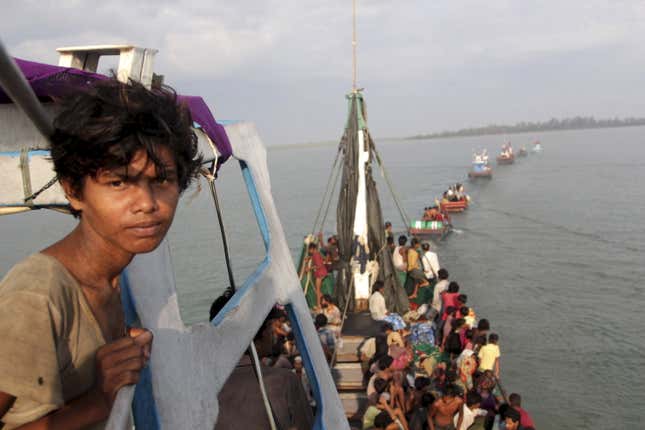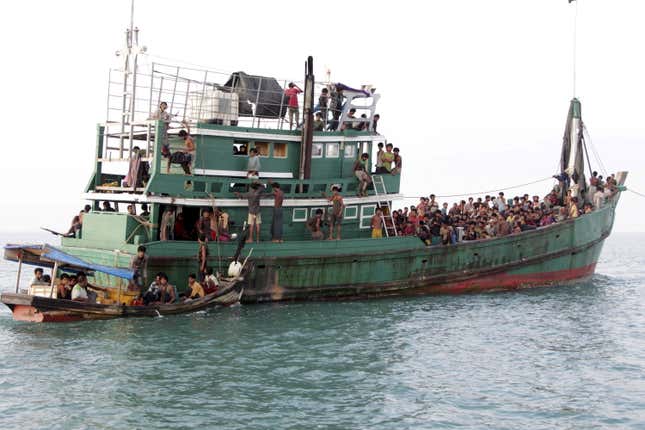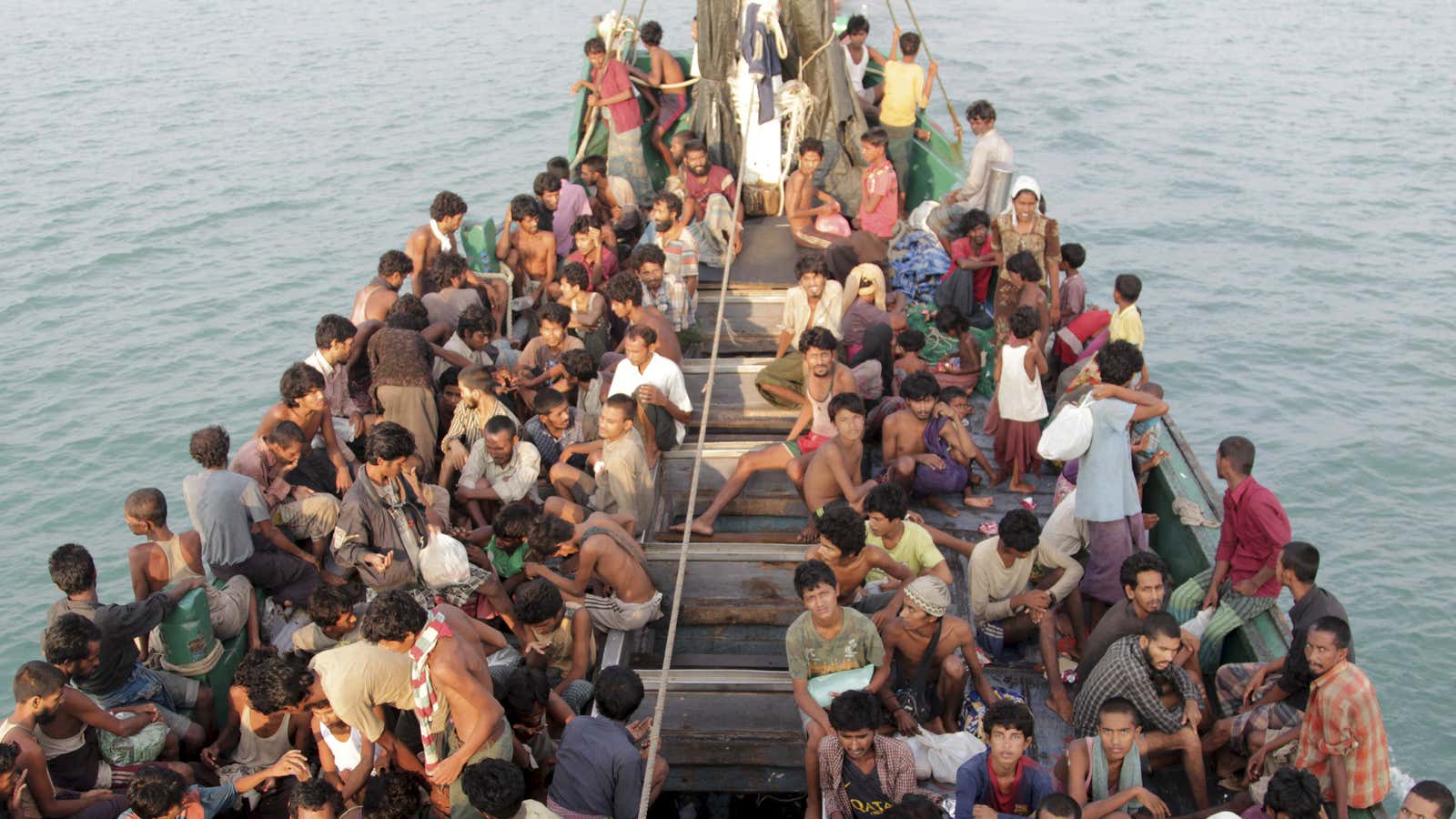The governments of Malaysia and Indonesia have agreed to provide temporarily shelter to some 7,000 Rohingya and Bangladeshi migrants who are stranded at sea, after several weeks of hemming and hawing by a group of southeast Asian governments. Malaysia and Indonesia, along with their neighbor Thailand, had recently been turning the migrant boats away from their territory, drawing condemnation from human rights groups, the US government, and Pope Francis.
“We understand the dire humanitarian circumstances of the crisis,” Malaysian foreign minister Anifah Aman told a news conference. “Therefore, we are allowing them into our waters immediately including those in high seas and in particular women and children.” In recent days, several hundred migrants have been towed to safety by Indonesian fisherman.

Noticeably silent was Thailand, which sent an official to the meeting that produced the announcement, but skipped the press conference. Phil Robertson of Human Rights Watch tweeted:
The Thai envoy “refrained from participating in the offer, saying he had to check with his government first,” according to Anifah. As Quartz has reported, it was Thailand’s belated crackdown on human smugglers that triggered the crisis in the first place.
Myanmar was a no-show at both the meeting and press conference. More than 100,000 of the Muslim Rohingya have fled Myanmar since 2012, when they became the targets of violence from the Buddhist majority, and have been forced to live in squalid internment camps. Myanmar and Thailand have also been sniping at each other over who is to blame for the crisis.
Human rights groups hailed the move by Malaysia and Indonesia to take in the Rohingya stranded at sea. But the fact that the region’s large Muslim-majority countries are aiding their fellow Muslims, while the Buddhist-majority Thais and Burmese refused to help, does not speak well for the coherence of the southeast Asian bloc that is trying to form a common economic community.

